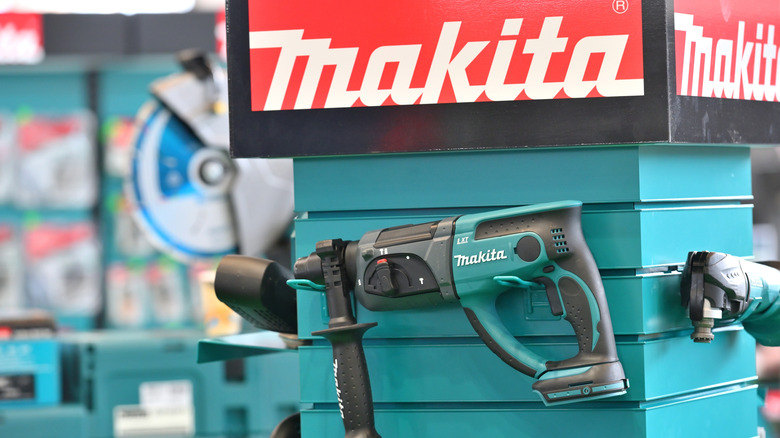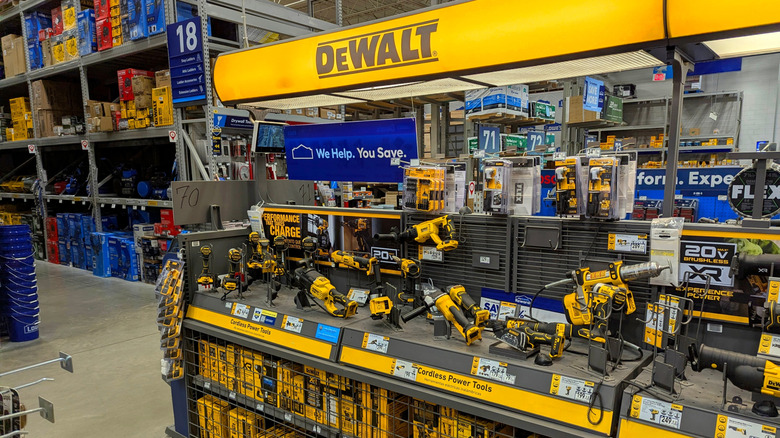Can You Use DeWalt Batteries With Makita Tools? Here's What We Found
Whether you are a professional or a serious DIYer, you know the struggle: you have tons of various power tools, but each one seems to have its own unique battery system. It is a common frustration, especially when you have invested in must-buy power tools from DeWalt and Makita, two huge names in the realm of power tools. The idea of using a single battery for multiple tools across differing brands is appealing and even reasonable. But while it may seem like a problem with a simple solution, the question of whether or not a DeWalt battery can power a Makita tool (or vice versa) is a bit complicated. Officially, the short answer is no. The long answer makes things more complicated, especially since every power tool company has its own proprietary battery platform with unique physical connectors and electronic systems, as well as warranty stipulations against cross usage and third-party accessories like adapters.
It is entirely likely that you have seen third-party battery adapters online, claiming they can fix this very problem; however, things just aren't that simple. Generally speaking, adapters act as a bridge between two devices. In this instance, those adapters let you physically connect a DeWalt battery to a Makita tool. While this seems like the perfect workaround to avoid buying various pricey batteries, these devices are not recommended. They introduce a number of hefty risks that could jeopardize your tools, your safety, and your wallet. Let's take a deeper dive and see precisely why.
Sorry, but adapters are not a safe solution
Using an adapter might seem like a practical way to save money on tools or accessories and reduce clutter. The most critical issue with them is that adapters can (and likely will) disrupt the necessary electronic communication between a tool and its battery. These two need to talk to each other almost constantly to monitor everything from temperature to charge and discharge rates, and that is precisely how manufacturers like DeWalt and Makita design them.
A generic adapter could bypass or interfere with any of these safety protocols, which could then lead to issues, such as overheating, irreversible damage, or even a full-on fire. This communication is critical for ensuring the battery operates normally and within safe parameters, and will keep its lifespan maximized for you. It is also a good idea to remove batteries from your power tool before storing it.
Beyond the technical risks, using a third-party adapter will almost certainly void your tool's warranty. Manufacturers explicitly state that their warranties do not cover damage caused by using unapproved accessories or components from other brands. And while you might be tempted to use an adapter to save on buying new batteries, the potential cost of repairing or replacing a damaged tool (which you would now have no warranty coverage for) far outweighs the initial savings. The best thing to do is to choose a single brand that you like and stick with it to eliminate concerns about battery and tool compatibility issues and the threat of violating your warranty. This will help ensure that your gear works correctly, safely, and gets the most out of its lifespan.

